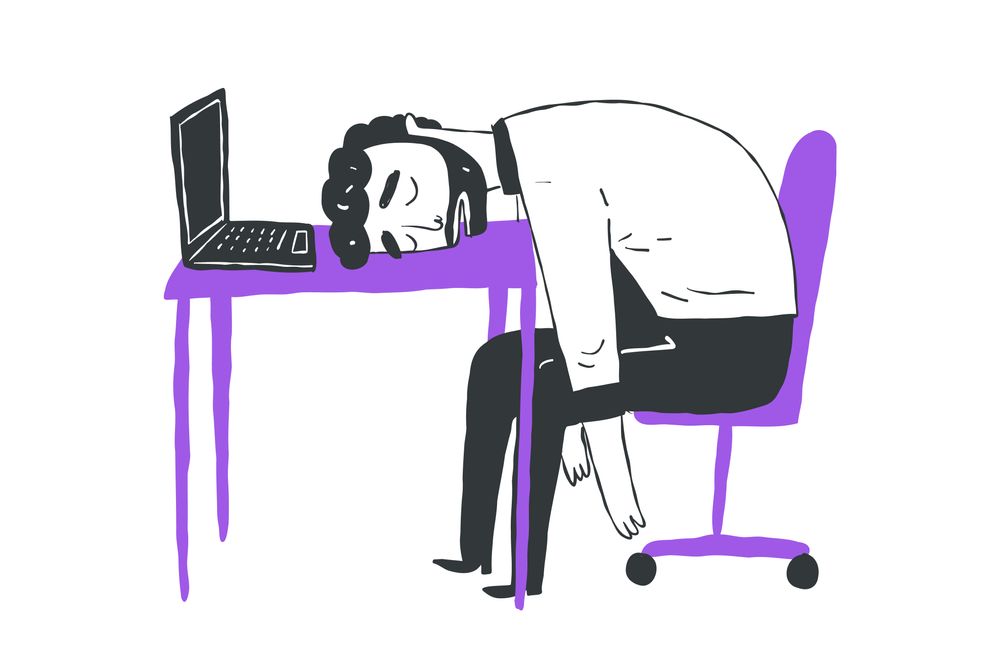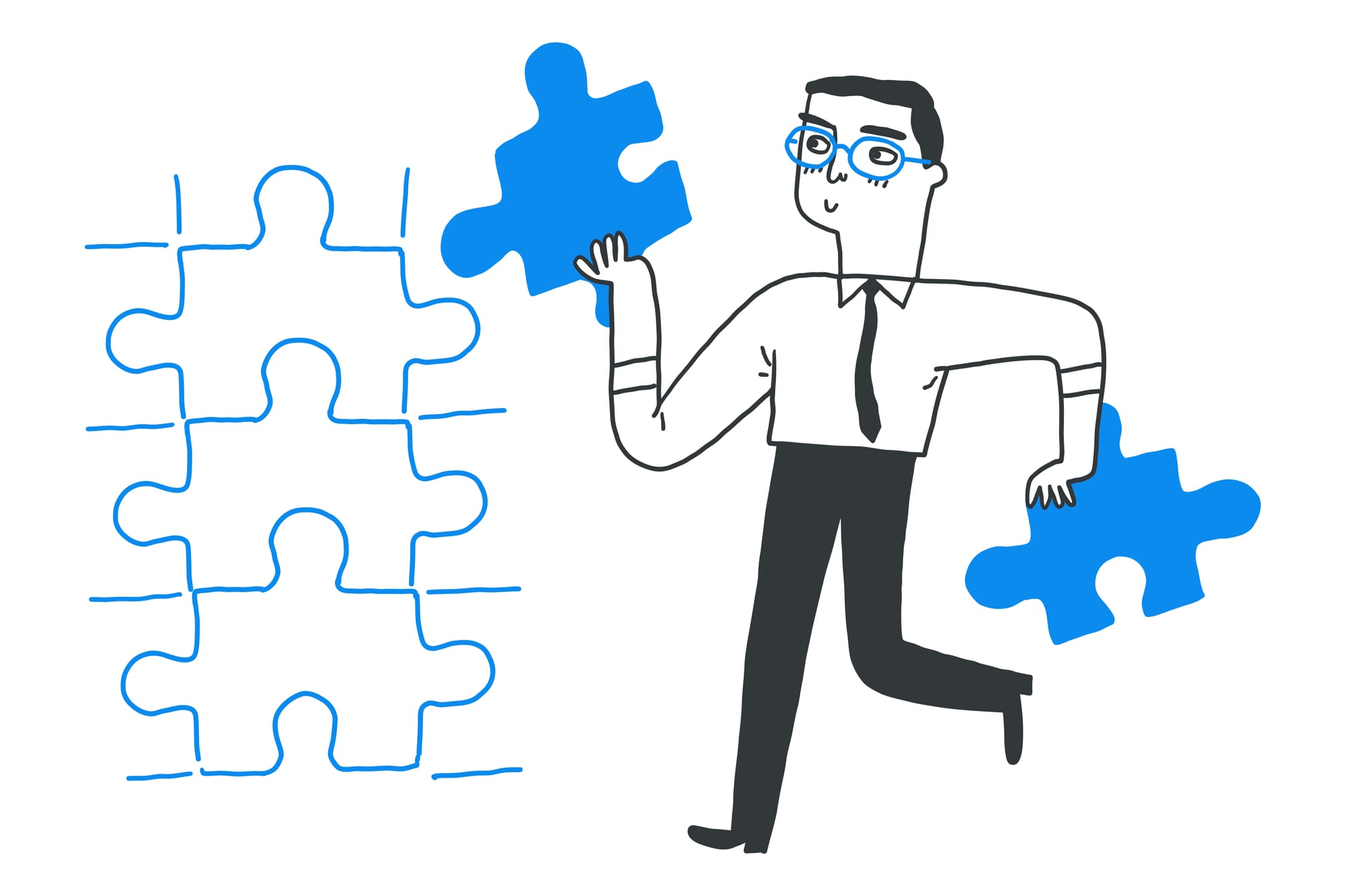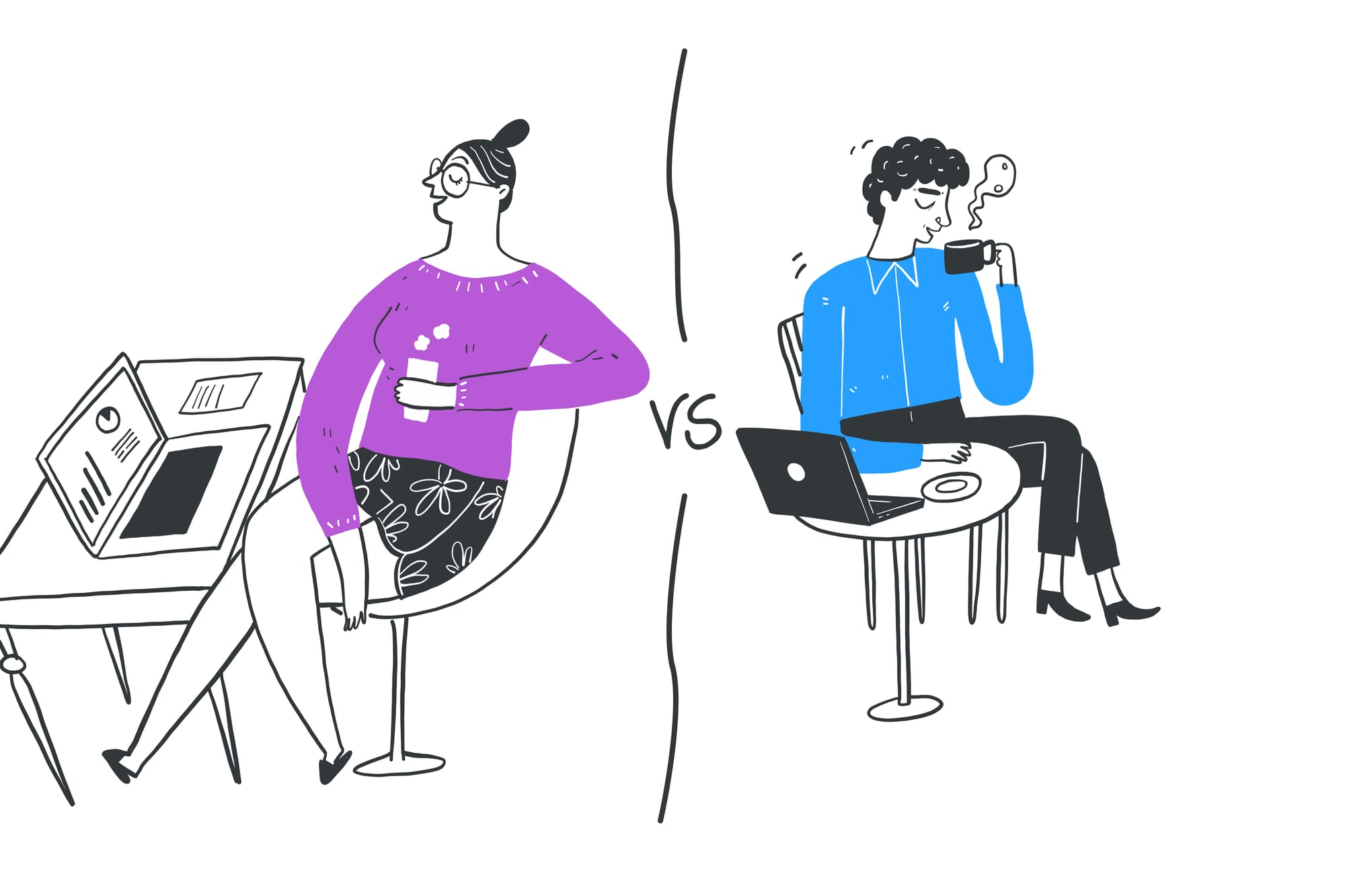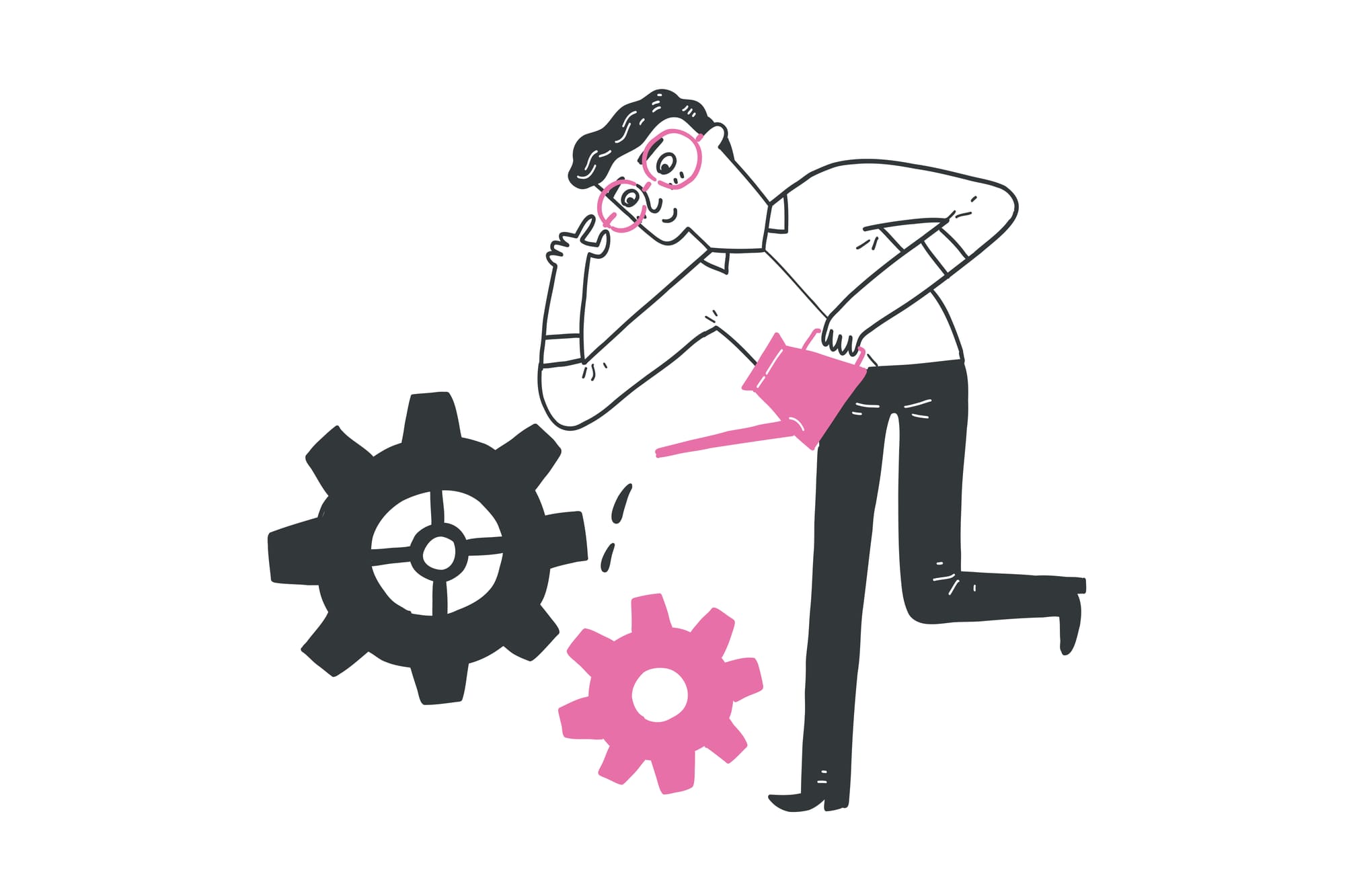Burnout is a rising concern, especially in demanding fields like software engineering. Software engineer burnout is a topic that's gaining momentum, and rightly so. The psychological and physical toll it takes can be severe if not addressed promptly.
Software Engineer Burnout: The Alarming Numbers
Recent surveys have illuminated this concern. An Indeed survey highlighted that 52% of respondents felt burnout, a percentage that swelled to 67% during the pandemic. A Deloitte survey painted a similar picture, with 77% of professionals feeling burned out at their current jobs. With many businesses shifting to a hybrid working model, burnout cases among software engineering teams are climbing. Astonishingly, 80% of engineers attribute their burnout to overwhelming workloads, management issues, and flawed engineering processes.
The situation might appear bleak for software developers, but there's hope if we prioritize mental and physical health.
FREE TOOL ALERT: Access the free burnout self-test here for insights on your mental state.
Recognizing Burnout: What It Sounds Like
Here are common sentiments that might indicate burnout:
“Software engineering is stressful. I’m really starting to hate this project. I don’t see this application doing any good for anyone.”
“Coding in Node.js is getting pretty easy — this is way below my skill level!”
“I can’t find the energy to do documentation work.”
“My chair is really wobbly - it’s driving me crazy!”
“If I have to attend another useless and unproductive one-to-one meeting, I swear I’ll quit!”
You might think it’s okay if your developers occasionally rant or blow off steam by saying one of the above phrases. But if they show a pattern of constant complaining and negativity (in combination with physical symptoms like fatigue, dizziness, or stomach issues), then it’s highly likely they’re suffering from burnout. But don't worry; we’ll navigate the maze of software developer burnout together.
Understanding Software Development Burnout
As you know, building technology is an extremely challenging endeavor that requires a great deal of brain work. You have to solve complex problems and do this while tightrope negotiating between the cost of building the technology, the complexity of the project, deadlines, and resource allocation, all while keeping your developers’ health and wellbeing a top priority.
It’s not surprising then that even the best engineers and engineering managers end up emotionally and physically drained from being exposed to such stressful, challenging work.
In general, there are three main areas burnout manifests in software engineering. The three areas are the following:
- Exhaustion: Difficulty in starting or completing tasks.
- Negativity: Emotional detachment or negativity towards projects or the workplace.
- Lack of Fulfillment: A feeling that the work isn’t meaningful.
What Are the Major Causes of Burnout in Software Engineers?
Burnout can silently grip a software engineer. Recognizing its causes can help sustain their passion for coding. Here are the primary culprits:
Overwhelming Workload & Impractical Deadlines
In a fast-paced work environment, programmers have to get from point A to point B quickly and efficiently. However, there are many other smaller, dependent tasks between points A and B that can cause your engineer to work longer hours. This can sometimes be unmanageable and lead to a serious case of developer burnout. To add to this, engineers have to push through projects within a tight deadline without sacrificing code quality.
Remote Work Challenges
Although the set-up of working from home might seem attractive to many engineers, it comes with its own set of problems. One of the biggest causes of burnout for software developers working remotely is the inability to keep work separate from home. Some engineers are great at drawing boundaries, while others are not. Some engineers might be more productive, but that’s because they’re working longer hours now that commuting, water cooler conversations, and dev team lunches are out of the picture. With personal stuff creeping into work life, your engineers are bound to put in longer hours than usual to get things done. That overwork leads to exhaustion and burnout.
What about bonding and team-building? What do coders do when they’re feeling discouraged or need a colleague around to share some wise words? A video call is great but lacks that human touch. Most of all, how do your dev teams collaborate on big projects with multiple stakeholders?
If you’re not sure how to approach working from home, burnout may soon rear its ugly head and affect your best engineers.
Perfectionism
Personality traits also influence a developer’s need for perfection, and this can also lead to burnout. Software engineers are natural problem-solvers, so they need to get to the bottom of things. But if this goes as far as obsessing over minor details, then they may be susceptible to burnout. Having caring teammates to whom they can outsource small tasks can really help them unburden their workload and reduce stress and fatigue.
Communication Gaps
Encouraging your engineers to communicate their problems and feelings with you and their teammates has a huge impact on mental health. Good communication either comes through informal channels on Slack, one-to-one meetings, or progress checks.
We also recommend focusing on regular touchpoints to see if they’re happy, engaged, and motivated. Otherwise, if opportunities for open and honest communication are put off, then developers bottle up their feelings and fall deeper into their isolation. Burnout eventually sets in.
Unclear Roles
Your dev team’s success or failure on projects may very well depend on how well you set goals and expectations. Every engineer has a purpose within a team, and every team has to deliver value. On the individual level, if an engineer does not know what is expected of them, they can get frustrated or tired and may contribute little to the project’s delivery. This signals that communication was poor in establishing goals, but also that the process lacked a control mechanism.
When it comes to working remotely, developers also rely too much on guesswork when expectations get blurry. This uncertainty results in a loss of time and productivity and forces the developer to undo problems that were created by making the wrong decision. The stress of these types of epic screw-ups almost always leads to burnout.
Neglecting Social & Sleep Needs
This cause of software engineer burnout is often neglected. It’s quite simple: little sleep makes your engineers physically and mentally tired. So, if they’re spending twelve hours in front of the monitor crunching code, then burnout is almost expected. Also, if your developers are clocking out without taking breaks to socialize or relax, they will suffer burnout.
Workplace Inequities
Every developer deserves to be treated with respect and dignity. Unfortunately, in the IT world, a company may have a few rock-star coders who garner all the attention, creating a bit of animosity at the workplace. This could lead to a loss of productivity, a drop in morale, and overall disinterest in continuing to work for the company.
This also may tie into how functional or dysfunctional a workplace is. Perhaps your mentoring program is showing signs of top-down bullying. Or maybe your seniors are belittling your juniors for errors. Or maybe you have a tendency to micromanage a bit too much? These factors can all contribute to job stress and developer burnout.
Another practice worth discussing is stack ranking. Stack ranking is a system that rates the performance of developers. Overachievers are often praised and underachievers are punished or let go. This unhealthy form of competition can corrupt workplace culture by causing developers to see no way forward and no hope for promotion.
Project Monotony
Burnout also manifests when your developers’ interest in a project is lost over time. This could be because they’re not challenged anymore, not connected to the work, or they’ve been working on a product on which their values are not aligned.
You, as a manager, need to intervene when you see that a project doesn’t resonate with your developers. Consider their wellbeing and make things stimulating for them. Maybe you could change up the tasks to get them to learn something new.
Imposter Syndrome
Tech leaders experience Imposter Syndrome when they feel they’re not good enough for the job, despite evidence showing otherwise. In many cases, sufferers of Imposter Syndrome doubt their achievements and intelligence and only focus on their failures or mistakes. They think they “got lucky” or have been duped by their colleagues who believe they’re fully qualified to lead. This is partly due to the fact that everybody wants to be Steve Jobs.
The anxiety that Imposter Syndrome produces is intense and if left unchecked results in depression or total burnout. Because new methods and programming languages are constantly coming out (and older ones are becoming outdated), this feeling of inadequacy or incompetence may arise whenever there is something new to learn.
The best way to deal with Imposter Syndrome is to understand that 1) it’s impossible to know every coding language 2) keep a daily log to remind you of achievements and productive things you’ve done and 3) keep close to your colleagues to build a sense of teamwork and appreciation for each other’s craft.
What Are the Signs of Developer Burnout?
It’s important to know what burnout isn’t, which is depression. Burnout can lead to depression, but not the other way around. Burnout is connected to job-related stress and overwork. Depression, however, is a mental health condition and diagnosis. The signs of burnout appear differently for different people. In any case, it’s important to know the signs of burnout before it’s too late.
Here is a short list of the signs of developer burnout.
Chronic Fatigue
Our energy levels naturally peak and trough throughout the day. But fatigue from burnout is totally different. It’s prolonged, sustained, and really dangerous for mental health.
According to the Mayo Clinic, burnout is defined as “unrelenting exhaustion that isn’t relieved by rest; a nearly constant state of weariness that develops over time, reducing your energy, motivation, and concentration.”
In software development, because your engineers are probably spending many hours at their desks, they too might feel overworked and may have no energy as a result. How do you know? Well, your developers may remain quiet during standups or feel disconnected. They may not be as sharp as usual when catching small errors or may take extended lunch breaks.
Be sure to spot your developers’ low energy levels before their consequences domino into other areas and create a loss of productivity.
Not Wanting to Connect With Colleagues/ Cynicism or Negative Emotions About the Job or Project
If your programmer seems apathetic or develops a nasty streak that can’t be explained, then this may be a sign of burnout. Ridiculing the organization and its future plans, or not taking projects seriously may also be another tell-tale sign of programmer fatigue.
In general, too much cynicism and negativity are toxic in the workplace. Research even shows that individuals who are too cynical earn less money, are at risk of depression, and are more prone to heart disease.
Help your developers escape the cynicism trap by encouraging good relations. You can do this by creating morale-boosting and stress-relieving opportunities like team outings or retreats.
Dipping Productivity
If your engineers seem unmotivated to carry out tasks or finish projects, then that’s a key sign of developer burnout. When software engineers burn out, they’re physically and mentally exhausted due to work that requires a high cognitive load. They struggle to focus on their deliverables and, as a result, a backlog of unfinished tasks starts to grow. The entire dev pipeline may come to a halt.
"Writing Code Just Isn’t Satisfying Anymore"
What is your game plan when your developers don’t feel satisfied writing a great, useful feature for their clients? Or when they see no hope in career growth or a way out of their situation?
As an engineering manager, you need to take action before this problem gets out of hand and results in software burnout. Encourage them to do exercise, practice mindfulness, or maybe give them some days off to recharge. Whatever the plan is, you need to discuss your options with them. Leaving these problems by the wayside can stifle creativity, create unnecessary friction, and overall affect the company’s morale.
A 2019 survey conducted by SHRM shows that one out of five employees leaves a job because of a “poor work environment.” The effects of flight from a company also ripple down to those remaining. This can create high absenteeism, missed deadlines, and further turnover. Having open and honest 1-to-1 meetings could help identify this risk marker, as well as other unrelated issues that may be taking a toll on your best engineers.
How Long Does Burnout Last?
The duration of burnout can really depend on a range of factors such as the individual's coping mechanisms, the severity of burnout, and the support and resources available to them.
In general, burnout can last for weeks, months, and even up to 5 years if not addressed properly. With proper treatment, including therapy, stress management techniques, and lifestyle changes, individuals can recover from burnout and prevent it from recurring in the future.
It's important to seek professional help if you're experiencing burnout, as prolonged burnout can lead to physical, emotional, and mental health problems.
How to Avoid Burnout?
Once burnout settles, it’ll take weeks or even months before your engineers make a full recovery. So, it pays to help them take preventative steps, so they can learn and understand how they manifest signs of burnout.
Here’s what many software engineers do to prevent the onset of burnout.
Create Strict Work Boundaries and Adhere to Them
Working from home is a great option when you know how to set rules and follow them. But if your engineers’ work-home lines are too blurry, and it’s proving hard for them to establish a solid 9-5, 8-4, or 7-3 work window, then at least try to help them eliminate distractions as a first step. Maybe they’ll need to put away their phones, remove browser notifications, and mute their WhatsApp messages.
Get them to prioritize their most important tasks by how much effort they require and how much impact they’ll have on the project. This makes it easier to focus. They may have to reject additional tasks or tell you why some tasks might take longer than usual.
At the end of the day, make sure they log off when the time comes. They shouldn’t feel bad about leaving something unfinished — burnout tends to prey on those who can’t escape the Zeigarnik effect.
Also, another great way for your engineers to separate their work from personal lives is to get up immediately after the workday is done. Encourage them to do some physical activity like going for a run. As long as they don’t wind down by remaining in their seats to play computer games or watch a movie.
Create Opportunities to Bond With Your Fellow Engineers
Coding can be extremely lonely and isolating work. But it doesn’t have to be that way. Even though your developers connect with teammates mostly via Zoom meetings, it can help if they have a friend or two that they can rely on and share things with. This could be in-office, virtual, or out-of-the-office.
Organizing social outings like go-karting or scavenger hunts helps build community. During such events, they can discuss non-work-related things like hobbies, traveling, or weekend plans.
Develop Healthy Technical Habits
It’s good for engineers to work in short sprints and follow an iterative development process. You can establish this rule in a 'Best Practices' guide.
Get them to develop some modules and test them out before moving forward. Make it protocol that they do not commit huge lines of code - better to do smaller pull requests. Encourage them to take breaks and do code reviews. To break the routine and take a refresher, try getting them to mentor or coach a junior. It’s a great way to connect with others.
Seek Out New Learning Opportunities
Your engineers should be learning something new every day. Burnout happens when engineers have been in the same role for a long time, using the same technology to patch up the same bugs. The monotony and repetitiveness really are soul-crushing.
When engineers are challenged with a new task that really pushes their limits, whether in the workplace or not, they regain a sense of purpose and can find their way back to feeling great about their work.
Recommend a course or start a new hobby. Maybe they can try new libraries, contribute to open source, or do any activity that gets them to venture beyond their comfort zone.
Take Care of Yourself (At Work and After Work)
When your engineers are burnt out and disengaged at work, chances are they’ll feel the same way in their romantic life, at the dinner table, or when they’re tucking their children in at night. That’s because they’ve been putting themselves last rather than first.
Productivity drops after 4 hours of intense focus. So, get them to stretch when they need to, do some meditation, walk off a cramp, or drink some water. Taking a regular break is like hitting a soft refresh button - you can still start again without losing attention or motivation. When your engineers start putting themselves first, it starts to show on the outside.
Other things to consider:
- Exercise your eyes with the 20/20/20 rule
- Optimize your monitor setup
- Manage your blue light exposure
- Open a window to get some fresh air
- Get plants
- Get apps that help you breathe, relax, etc.
- Scratch caffeine off your diet
- Walk your dog on your lunch break
- Get good sleep
- Learn to say no to more work
- Change your mindset
Ask For Support
Companies have been really investing in mental health and workplace wellness. Initiatives like mental health days, shortened workweeks, and counseling benefits have really helped workers get through burnout. It’s worth noting that by not doing anything to help your developers beat a serious case of burnout, your company could potentially be losing thousands, if not millions of dollars, in lost productivity.
If you notice that your engineers are starting to feel some of the symptoms of burnout, schedule a one-to-one meeting with them to discuss your options as it may be difficult to find the right treatment right away. There are a slew of digital solutions that offer nuanced approaches to therapy; they’re accessible at any time and from anywhere and are completely anonymous.
If you’d like to know if your software developers are going through burnout, you can download our Software Engineering Burnout Self-Test and share it with them.
How Can Developers Get Involved in the Developer Community?
What are some specific activities that developers can engage in to get involved?
Developers can engage in various activities to get involved in the community. They can attend local or virtual meet-ups, participate in online communities like Slack or Discord, contribute to open source projects, try out new libraries, or even speak at conferences. These activities provide opportunities for learning, networking, and building relationships with fellow developers.
How can community involvement be a game changer for developers?
Community involvement can be a game changer for developers as it enables them to enhance their skills, stay up-to-date with industry trends, and expand their professional network. By actively engaging with the community, developers can gain valuable insights, collaborate on projects, and discover new opportunities that can have a transformative impact on their careers.
What are the benefits of being involved in the community?
Being involved in the community offers numerous benefits for developers. It helps to increase their skill set as developers, exposes them to the industry and broadens their awareness of it. Additionally, community involvement provides networking opportunities, allowing developers to connect with industry professionals and potentially open doors for career advancement.
What are some practical steps for developers to take to get involved?
Practical steps for developers to get involved include attending local meet-ups or virtual meet-ups, joining online communities like Slack or Discord, and actively participating in conferences. These steps allow developers to connect with others, learn from their peers, and expand their professional network.
How can developers get involved in the community?
Developers can get involved in the community by participating in local or virtual meet-ups, joining Slack or Discord communities, attending conferences, and even speaking at conferences. Being involved in the community is highly recommended as it can be a game changer for developers.
How Can Developers Address Their Concerns About Their Job to Management?
What are some digital solutions for addressing burnout?
There are a slew of digital solutions available to address burnout, offering nuanced approaches to therapy. These solutions are accessible at any time and from anywhere, providing employees with anonymous support and guidance.
How can companies invest in mental health and workplace wellness?
Companies can invest in mental health and workplace wellness by implementing initiatives such as mental health days, shortened workweeks, and counseling benefits. These initiatives can help employees cope with burnout and improve their overall well-being.
How can individuals make small changes to bring more excitement and balance to their day-to-day work?
Developers can take the initiative to make small changes in order to bring more excitement and balance to their day-to-day work. They can explore new projects, suggest ideas for improvement, or seek out additional responsibilities that align with their interests and strengths.
What should individuals do if management is not receptive to their concerns?
If management is not receptive to their concerns, developers should consider exploring other opportunities. It is crucial to work in an environment where people are receptive to feedback and willing to address concerns raised by employees.
How can developers communicate their concerns to management?
Developers should be able to effectively communicate their concerns to management. It is important to express these concerns openly and honestly, discussing any challenges or issues that they may be facing in their job roles.
Top 5 Books About Burnout for Software Developers
- Getting Past Burnout, Busywork, and the Myth of Total Efficiency by Tom DeMarco
- It Doesn't Have to Be Crazy At Work by Jason Fried and David Heinemeier Hanson
- The Book of Burnout by Bev Aisbett
- Burnout by Emily Nagoski, Ph.D., Amelia Nagoski, DMA
- Do Nothing: How to Break Away from Overworking, Overdoing, and Underliving by Celeste Headlee





